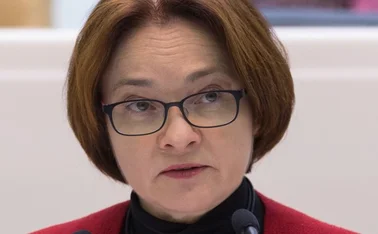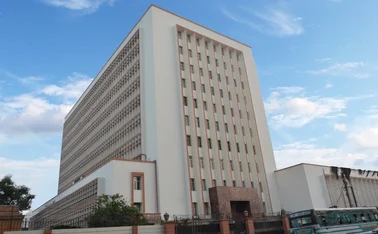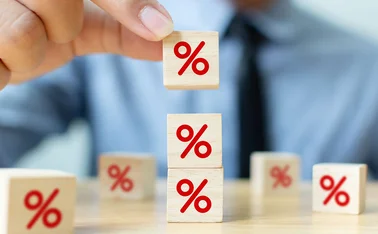
Economy satisfactory - Ghana central bank chief
Dr Acquah told journalists after the first meeting of the Monetary Policy Committee (MPC) set up by the Central Bank to monitor interest rates, that the government budget added some impetus to the economy.
Revenue growth was robust and on target, but the pace of government expenditure was more rapid. Considerable amounts of arrears accumulated over the past years, which had remained in the system were cleared.
Inflation slumped from a high of 41.9 per cent in March 2002 to 12.9 per cent in September but this inched up to 13.2 per cent in October.
He said government borrowing increased to 4.7 per cent of Gross Domestic Product - 2,247 billion cedis - in mid November. The borrowing was financed on the domestic money market in the form of treasury bills, he said, adding that the increase was "significant" as it held money which otherwise should have gone to finance private sector operations.
Government borrowing from the Bank, he said, was almost close to the statutory 10 per cent ceiling under the Bank of Ghana Act.
Reserve money growth as at October was 19.3 per cent, slightly above the end year target of 19.0 per cent with broad money growth on the other hand at 18.4 per cent in September.
"On a year-on-year basis, broad money growth was 43.0 per cent in September, and was driven by an increase in foreign currency deposits as well as time and savings deposits in the banking system".
Dr Acquah said private inward remittances at the end of September through the banks and finance companies amounted to 540.06 million dollars. This is higher than the estimated 400 million dollars in 2001.
Cumulative total foreign exchange purchases during the year through to the end of October was 744.30 million dollars, compared to the total sales of 724 million dollars over the same period last year. This represents a 30 per cent increase over the same period last year.
The increase in private remittances and bank purchases and sales of foreign exchange means that there has been an increase availability of foreign exchange in the economy this year.
In a related development, the cedi depreciated by 13.1 per cent in dollar terms during the year, against an annual inflation of some 13.0 per cent, the Central bank said on Friday.
It said this follows a significant realignment of major currencies on the international foreign exchange market over the same period. The Central Bank said the dollar appreciated against the Euro and the British pound by 7.6 per cent and 6.8 per cent respectively.
It said the real exchange rate index of the cedi at the beginning of the year was 127.6 per cent, increasing by 5.8 per cent to 133.4 as at October.
"Over the last three months, however, the cedi has appreciated in real terms of just 0.3 per cent," Dr Paul Acquah told journalists.
He said Ghana continues to show an upward trend of Gross International Reserve position, noting that it went from 235.4 million dollars in May 2001 to 488.8 million dollars by end of October 2002.
Gross reserves in months of imports increased from one month last April to two months as at the end of October.
Dr Acquah said interest rates have remained steady with low volatility and benchmark 91-day Treasury Bill rate moving marginally from 26.06 per cent in August to 26.09 per cent by October.
The yield on 182-day bill and one-year note remained flat at 26.9 and 27.0 per cent respectively between August and October 2002 after the rapid declines in the year.
The Governor said within the inter-bank market, money market interest rates declined sharply from 21.9 per cent in September to 16.9 per cent in October 2002.
Commercial bank base rates remain within a range of 26 and 29 per cent.
Only users who have a paid subscription or are part of a corporate subscription are able to print or copy content.
To access these options, along with all other subscription benefits, please contact info@centralbanking.com or view our subscription options here: http://subscriptions.centralbanking.com/subscribe
You are currently unable to print this content. Please contact info@centralbanking.com to find out more.
You are currently unable to copy this content. Please contact info@centralbanking.com to find out more.
Copyright Infopro Digital Limited. All rights reserved.
You may share this content using our article tools. Printing this content is for the sole use of the Authorised User (named subscriber), as outlined in our terms and conditions - https://www.infopro-insight.com/terms-conditions/insight-subscriptions/
If you would like to purchase additional rights please email info@centralbanking.com
Copyright Infopro Digital Limited. All rights reserved.
You may share this content using our article tools. Copying this content is for the sole use of the Authorised User (named subscriber), as outlined in our terms and conditions - https://www.infopro-insight.com/terms-conditions/insight-subscriptions/
If you would like to purchase additional rights please email info@centralbanking.com
Most read
- ECB staff speak out against changes to internal survey
- Central bank of the year: Central Bank of Brazil
- French president calls for expanded ECB mandate







